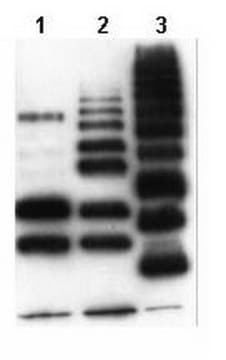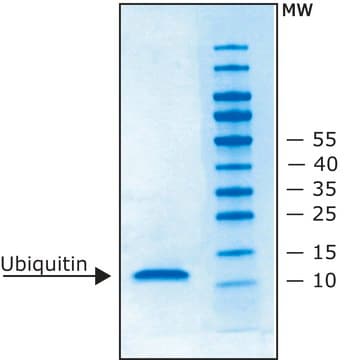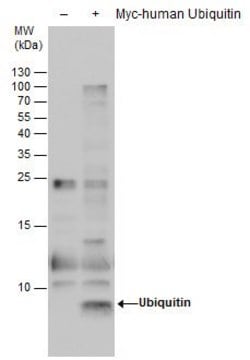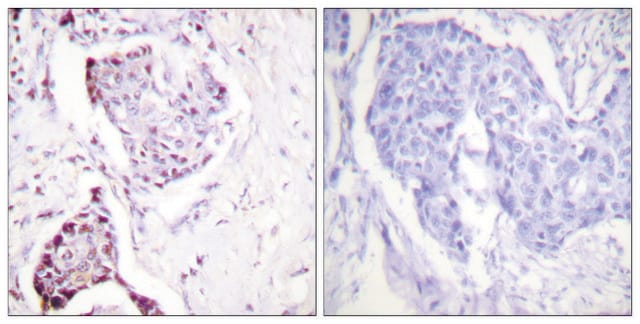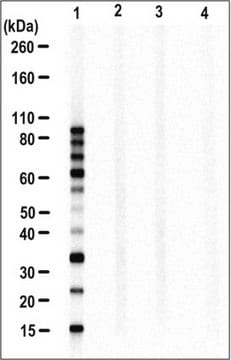U5379
Anti-Ubiquitin antibody produced in rabbit
whole antiserum, lyophilized powder
Synonyma:
Anti-Ubiquitin antibody
About This Item
Doporučené produkty
biological source
rabbit
Quality Level
conjugate
unconjugated
antibody form
whole antiserum
antibody product type
primary antibodies
clone
polyclonal
form
lyophilized powder
mol wt
antigen 8.6 kDa
species reactivity
prokaryotes, eukaryotes
technique(s)
immunohistochemistry (frozen sections): suitable
western blot: 1:100 using ubiquitin purified from bovine red blood cells
UniProt accession no.
storage temp.
2-8°C
target post-translational modification
unmodified
Gene Information
human ... UBB(7314) , UBC(7316)
mouse ... Ubb(22187) , Ubc(22190)
rat ... Ubb(192255) , Ubc(50522)
General description
Specificity
Immunogen
Application
- immunostaining in neuropathology
- immunohistochemistry
- western blotting
Biochem/physiol Actions
Target description
Physical form
Reconstitution
Disclaimer
Ještě jste nenalezli správný produkt?
Vyzkoušejte náš produkt Nástroj pro výběr produktů.
recommended
Storage Class
11 - Combustible Solids
wgk_germany
WGK 3
flash_point_f
Not applicable
flash_point_c
Not applicable
ppe
Eyeshields, Gloves, type N95 (US)
Osvědčení o analýze (COA)
Vyhledejte osvědčení Osvědčení o analýze (COA) zadáním čísla šarže/dávky těchto produktů. Čísla šarže a dávky lze nalézt na štítku produktu za slovy „Lot“ nebo „Batch“.
Již tento produkt vlastníte?
Dokumenty související s produkty, které jste v minulosti zakoupili, byly za účelem usnadnění shromážděny ve vaší Knihovně dokumentů.
Zákazníci si také prohlíželi
Náš tým vědeckých pracovníků má zkušenosti ve všech oblastech výzkumu, včetně přírodních věd, materiálových věd, chemické syntézy, chromatografie, analytiky a mnoha dalších..
Obraťte se na technický servis.
